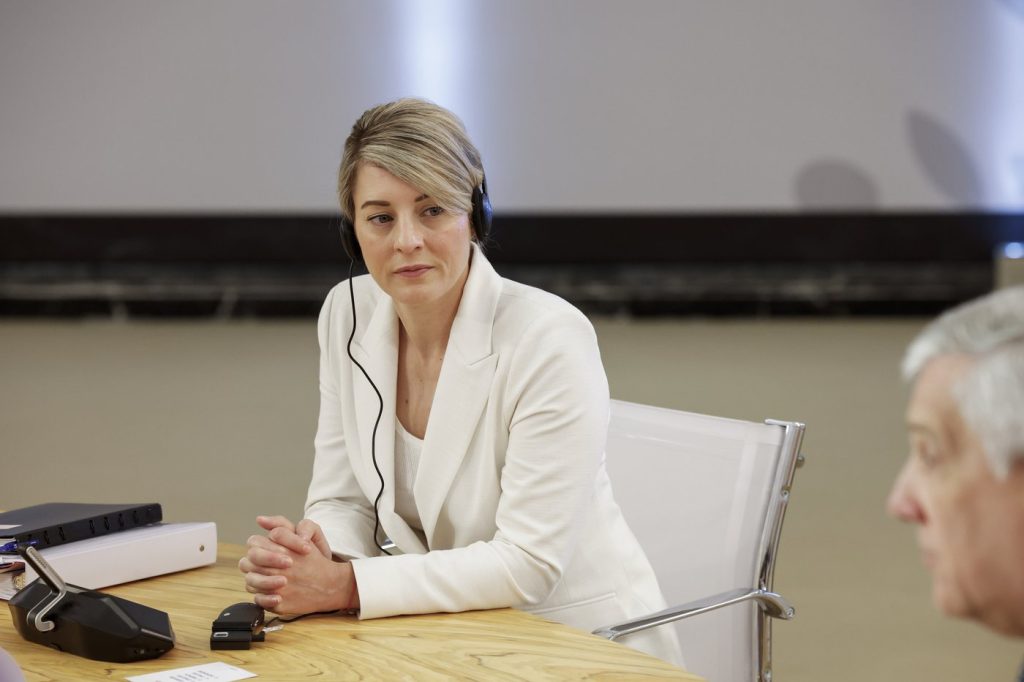OTTAWA – This week, Foreign Affairs Minister Mélanie Joly is hosting her counterparts from some of the world's most powerful countries in Quebec as Canada strives to maintain unity among Washington and its Group of Seven (G7) partners while addressing U.S. tariffs. The gathering aims to foster cooperation amidst ongoing geopolitical challenges, particularly the impacts of global instability heightened by conflicts and the shifting balance of power towards countries like China.
According to former diplomat and Senator Peter Boehm, the goal of this meeting is to achieve a consensual statement that addresses all relevant issues. The foreign ministers from the G7 nations are set to convene from late Wednesday to Friday afternoon in the Charlevoix region of Quebec, with U.S. Secretary of State Marco Rubio set to participate alongside representatives from the U.K., France, Germany, Italy, Japan, and the European Union.
The ministers are scheduled to hold a news conference on Friday afternoon, where they will discuss a range of pressing issues they have encountered in recent years, including military conflicts, the rise in the number of displaced persons, and the decline of Western influence, particularly in light of Russia's actions in Ukraine and the influence of the Trump administration.
Joly indicated that a primary focus for her during this meeting will be to confront the contentious issue of U.S. tariffs. She stated, “In every single meeting, I will raise the issue of tariffs to co-ordinate our response with the Europeans and to put pressure on the Americans.” This comes amid claims by Joly that President Trump's trade policies could be perceived as a pretext for attempting to annex Canada into the U.S.
On the other hand, Secretary Rubio has clarified that the G7 discussions will prioritize issues such as North American security and the situation in Ukraine, arguing that the meeting is “not about how we’re going to take over Canada.” He acknowledged the implications of Trump's tariffs as policy decisions while suggesting that the U.S. perspective is that Canada might benefit from joining the U.S.—a notion that Canadian officials clearly dispute.
This year, Canada holds the rotating G7 presidency, and a leaders' summit is set for June in Alberta. For this week, the focus for foreign ministers will include various critical challenges, with a dedicated session planned on Thursday regarding "strengthening the G7." Additional working sessions will address geopolitical issues, including conditions in the Middle East, stability in the Indo-Pacific region, and the crises in Haiti, Venezuela, Sudan, and the Democratic Republic of Congo.
In addition to group discussions, Joly is expected to engage in several bilateral meetings aimed at promoting Canada’s interests. These discussions may address reviving stalled trade negotiations with the U.K., enhancing military collaboration with Germany, or advancing artificial intelligence initiatives with France.
Boehm noted that the situation in Ukraine would be a critical focus during the closed-door sessions. Canada considers Ukraine’s security a top priority as G7 chair, emphasizing that failure to hold Russia accountable for its aggression could encourage further territorial disputes by other nations. European leaders share the view that the war must conclude under terms that prevent future Russian aggression, yet the U.S. has shown reluctance concerning troop deployments to facilitate a ceasefire.
Meanwhile, Canada has taken proactive steps to utilize Russian funds held in frozen accounts to support Ukraine’s defense. The G7 has initiated plans to potentially use this frozen capital to back loans to Kyiv, although there is hesitance among some European leaders about accessing these funds directly.
Boehm remarked that the closing statement from the G7 ministers may follow the pattern of earlier consensus achieved during the Munich Security Conference in mid-February, where they found common ground on various international issues but avoided contentious topics like U.S. tariffs. The outcome of this week’s discussions will likely play a significant role in shaping the G7’s unified approach to pressing global challenges.










